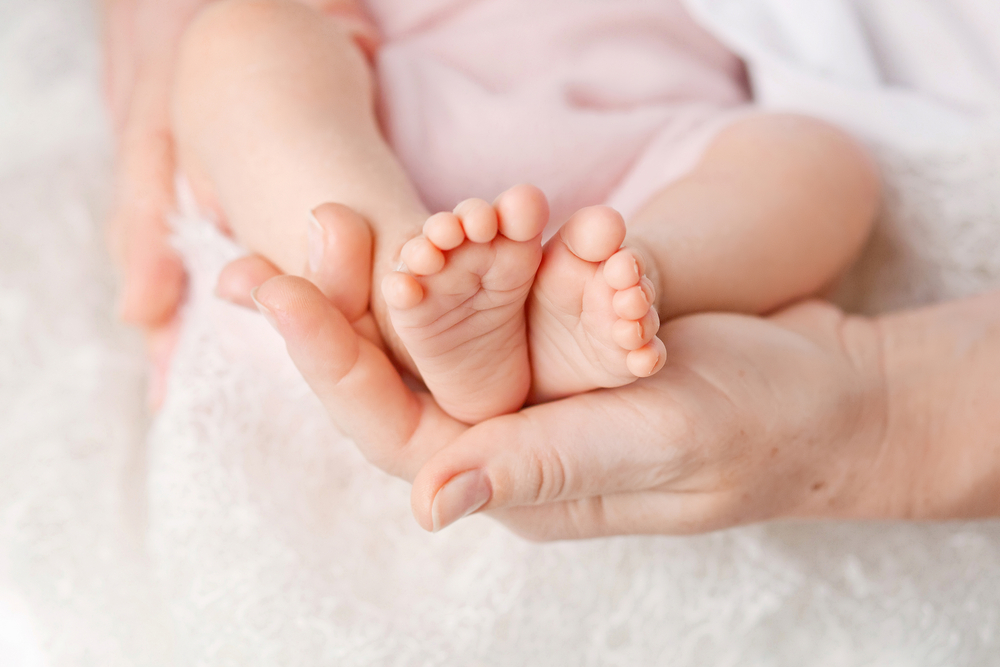
The first weeks at home with a new baby can be a hard and a stressful event. You may have questions about your baby. Below are some common issues, physical features and behaviors you may notice when you bring your baby home from the hospital.
Feeding Your Baby
All babies lose a few ounces during the first few days. Most babies will gain the weight back by 1-2 weeks. Then infants gain approximately an ounce per day. A mother often wonders if her baby is getting enough milk. Your baby is doing fine if he or she demands appears approximately every 3 hours (more frequent for breast feed babies), appears satisfied after feedings, wets 6 or more diapers each day, and passes 3 or more soft stools per day. Your pediatrician after each visit will also weigh the baby to assess if caloric requirements are being met.
Sleeping
For the 1st week with your baby is going to sleep 16-20 hours a day, and it will not be on any set schedule. Remember to place your baby in his crib on his back. The back position reduces the risk of Sudden Infant Death Syndrome (SIDS). It is important for yourself to avoid sleep deprivation to go to bed earlier after your baby's final feeding of the day and when your baby naps you should nap too. You don’t have to watch over the baby while he/she is sleeping. If sick, your baby will show symptoms.
Postpartum Blues
More than half of new mother experience postpartum blues, the main cause of this the sudden decrease of maternal hormones. The symptoms include tearfulness, tiredness, and sadness. These symptoms usually clear in 1 to 3 weeks as the hormone levels return to normal. There are several ways to cope with the postpartum blues. First, acknowledge your feelings. Discuss them with your husband or a close friend. Don't feel you need to suppress crying or deny your feeling of sadness. Second, get adequate rest. Third, get help with all your work. Fourth, renew contact with other people; don't become isolated. Get out of the house at least once a week--go to the hairdresser, shop, visit a friend, or see a movie. If you don't feel better by the time your baby is 1 month old, see your healthcare provider about the possibility of counseling for depression.
The Father's Role
The father should try to take time off from work to be with his wife during labor and some time after delivery. Today's father should try to help with feeding, changing diapers, bathing, putting to bed, dressing, disciplining, homework, playing games, and calling the doctor when the child is sick. The father needs to be his wife's support system.
Visitors
Only close friends and relatives should visit you during your first month at home. They should not visit if they are sick.. During visits the visitor should also pay special attention to older siblings.
Coughing, Sneezing, and Hiccups
Occasional coughing and sneezing at times is normal. This does not mean your baby is sick. You can often treat this with normal saline drops to nose and suctioning the congestion from the nose with bulb syringe. New babies often hiccup during or after eating. You treat this with frequent burping of the baby.
Head
Your baby’s head may look large and misshaped from the birth process. This
will slowly correct itself in about a week. Babies have two soft spots on the
head. These soft spots will slowly close and do not need any special care.
Eyes
Babies can see distance very close, approximately 8-10 inches. Your baby’s eye color can change to its permanent color at 6-12 months. It is normal for your baby's eyes to be
little swollen, have red spots in the white part of the eyes or look cross-eyed.
These conditions will most often go away.
Breasts and Genitals
It is normal for babies' breasts and genitals to look swollen and even have a small amount of milk-like fluid coming out of the breast. This is secondary to maternal hormone still in the baby’s body and will go away. In fact secondary to this it is also normal for baby girls to have a small amount of blood-tinged vaginal discharge and mucus for several days after birth.
For any other issues it is important to see your physicians. Generally we recommend the first check up 2-3 days after discharge, do not be afraid to write all any questions you may have to your health care provider and develop a good relationship with your physician.





